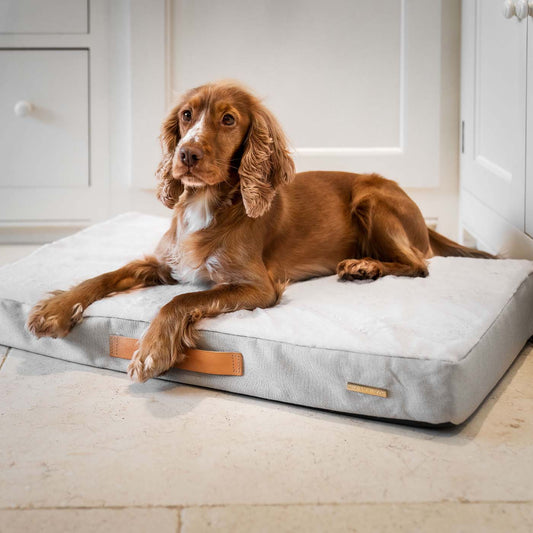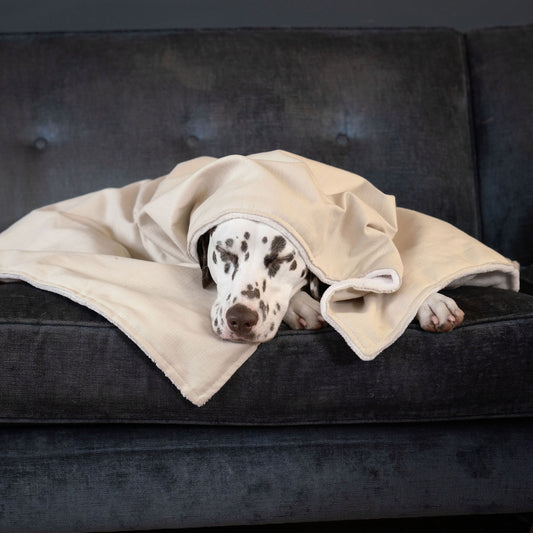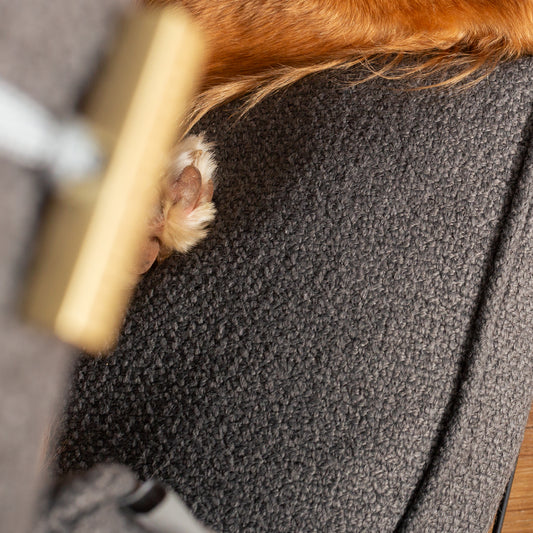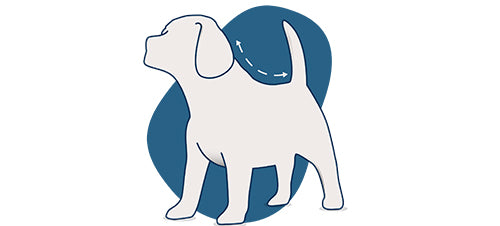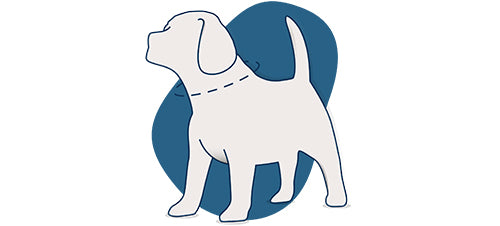Dogs, like us humans, need sleep to stay healthy and energised. However, one common question many pet owners have is, "How long do dogs sleep for a day?" or "How much sleep do dogs need by age?" Understanding your dog's sleep needs is essential for their overall well-being and can help you ensure they are getting enough rest. In this blog, we explore the factors that influence how much sleep dogs need and provide insights on how to ensure your dog is getting the right amount of rest, regardless of their age.
Why Is Sleep Important for Dogs?
Sleep plays a crucial role in maintaining your dog's health. Just as it does for humans, sleep helps your dog’s body recover, supports cognitive function, and strengthens the immune system. Adequate rest is especially important for growing puppies, active adult dogs, and older dogs who may need more sleep to maintain their health. During sleep, a dog’s body repairs tissues, builds muscle, and releases growth hormones that aid in development.
A good amount of sleep helps to regulate your dog’s mood and behaviour. Sleep-deprived dogs may become more irritable, anxious, or hyperactive. Ensuring your dog gets enough rest not only keeps them healthy but also helps them stay calm, balanced, and well-behaved.

How Long Do Dogs Sleep for a Day?
The amount of sleep your dog needs, varies based on several factors, including age, breed, and lifestyle. On average, dogs sleep anywhere from 12 to 14 hours a day, although some dogs may need more or less, depending on their individual needs.
Puppies: 18 to 20 Hours a Day
Puppies, especially during their first few months, need the most sleep. These young dogs are constantly growing, developing, and learning about their surroundings. Their bodies and brains are working overtime to process new experiences and build muscle mass, which requires a significant amount of rest. Puppies may sleep up to 18 to 20 hours a day, with sleep occurring in cycles that include short periods of play and eating in between naps.
Because of this, it’s important to create a consistent sleep schedule for your puppy. Provide them with a quiet, comfortable space where they can retreat to for naps during the day, ensuring they are undisturbed during these critical rest periods. Our puppy crate sets are a great place to start should you need help deciding how to create a space for your new pup.
Adult Dogs: 12 to 14 Hours a Day
Most adult dogs will sleep around 12 to 14 hours a day. The exact amount of sleep depends on the dog’s breed, size, and energy levels. Larger breeds, such as Great Danes and Mastiffs, tend to sleep more than smaller, more active breeds like Terriers and Spaniels.
Adult dogs typically adapt to their owner’s routine and lifestyle. They may sleep through the night with their family and take naps during the day, often adjusting their rest time based on the amount of exercise and mental stimulation they receive. Active dogs that participate in high-energy activities such as running, hiking, or agility training may require more sleep to recover and recharge.
Senior Dogs: 14 to 18 Hours a Day
As dogs age, their sleep needs increase once again. Senior dogs often sleep between 14 and 18 hours a day due to a natural decline in energy levels and a slowing metabolism. Older dogs are more prone to joint pain, arthritis, and other health issues that may require them to rest more often.
It’s important to monitor your senior dog’s sleep habits, as changes in sleep patterns can be a sign of underlying health conditions. If your senior dog seems to be sleeping excessively or not getting enough sleep, a visit to the vet may be necessary to rule out any potential medical issues.

Factors That Affect How Much Sleep Dogs Need
While age is a significant factor in determining how much sleep your dog needs, other factors can also influence their sleep patterns.
-
Breed
Different dog breeds have varying energy levels and exercise requirements, which can affect how much sleep they need. Breeds that are known for their calm, relaxed demeanour, such as Bulldogs, Basset Hounds, and Newfoundland’s, tend to sleep more than high-energy breeds like Border Collies or Jack Russell Terriers. Larger breeds, in general, tend to need more sleep than smaller breeds. -
Activity Levels
Dogs that are highly active, such as working dogs or those involved in sports like agility, need more rest to recover from their exertions. After a long walk, an intense play session, or a day spent training, your dog will likely require more sleep than usual to recuperate.
On the other hand, dogs with lower activity levels, such as those who live in apartments or those who don’t receive regular exercise, may nap out of boredom. While this is normal, it’s important to ensure they are still getting enough mental and physical stimulation to stay healthy. -
Health
A dog’s health can significantly affect how much sleep they need. Dogs recovering from surgery, illness, or injury may need more sleep as their bodies heal. Conversely, dogs with certain health conditions, such as hyperthyroidism or anxiety, may struggle with disrupted sleep patterns.
Regular vet check-ups are essential to monitor your dog’s health and address any issues that may be affecting their sleep. -
Environment
Your dog’s environment can also impact their sleep quality. Dogs that live in noisy, busy households may find it harder to get restful sleep, while dogs in quieter homes may sleep more soundly. It’s important to provide your dog with a comfortable, quiet space where they can relax and sleep without being disturbed.
How to Ensure Your Dog Gets Enough Sleep
To help your dog get the rest they need, here are some tips to create a healthy sleep routine:
-
Create a Consistent Routine
Dogs thrive on routine. Establish a consistent daily schedule that includes regular times for meals, exercise, play, and sleep. Keeping a steady routine will help regulate your dog’s sleep patterns and ensure they get the rest they need.
-
Provide a Comfortable Sleeping Space
Make sure your dog has a dedicated sleeping area that is comfortable, quiet, and free from distractions. A high-quality dog bed suited to your dog’s size and sleeping style is essential for providing support and comfort. Older dogs or those with joint issues may benefit from orthopaedic beds that offer additional cushioning. -
Ensure Adequate Exercise
Regular exercise is key to promoting healthy sleep patterns in dogs. Make sure your dog receives enough physical activity during the day to burn off energy and stimulate their mind. This will help them settle down at night and sleep more soundly. -
Limit Distractions at Night
If your dog tends to be restless at night, try to minimise distractions that could be keeping them awake. This might include reducing noise, lowering the lights, and keeping the house calm and quiet during sleep time. Consider using a crate with a cover, or a designated sleeping area to create a sense of security.
Understanding how much sleep your dog needs by age is crucial for maintaining their health and well-being. Puppies may sleep up to 20 hours a day, while adult dogs typically need 12 to 14 hours, and senior dogs may require even more rest. Breed, activity level, health, and environment all play a role in determining your dog’s sleep needs, so it’s important to observe your dog’s behaviour and provide them with the right care and support.
By establishing a consistent routine, providing a comfortable sleep space, and ensuring they get enough exercise, you can help your dog achieve restful, rejuvenating sleep that will keep them happy and healthy.




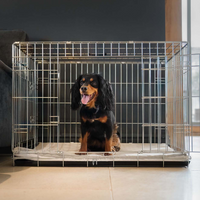




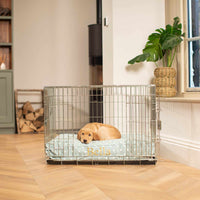
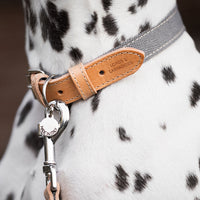





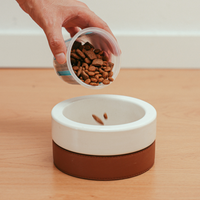
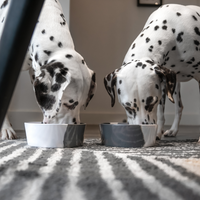



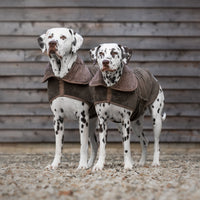
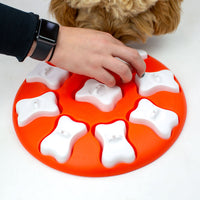







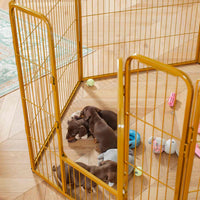
















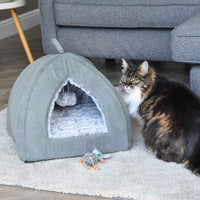









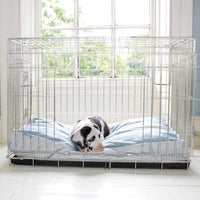




.jpg?v=1724844084206&options=)



